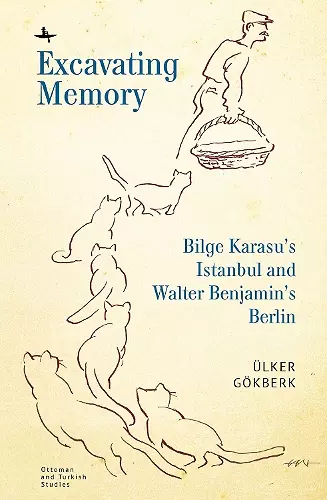Excavating Memory
Bilge Karasu's Istanbul and Walter Benjamin's Berlin
Format:Hardback
Publisher:Academic Studies Press
Published:30th Aug '20
Currently unavailable, and unfortunately no date known when it will be back

This study moves the acclaimed Turkish fiction writer Bilge Karasu (1930–1995) into a new critical arena by examining his poetics of memory, as laid out in his narratives on Istanbul's Beyoğlu, once a cosmopolitan neighborhood called Pera. Karasu established his fame in literary criticism as an experimental modernist, but while themes such as sexuality, gender, and oppression have received critical attention, an essential tenet of Karasu's oeuvre, the evocation of ethno-cultural identity, has remained unexplored: Excavating Memory brings to light this dimension. Through his non-referential and ambiguous renderings of memory, Karasu gives in his Beyoğlu narratives unique expression to ethno-cultural difference in Turkish literature, and lets through his own repressed minority identity. By using Walter Benjamin's autobiographical work as a heuristic premise for illuminating Karasu, Gökberk establishes an innovative intercultural framework, which brings into dialogue two representative writers of the twentieth century over temporal and spatial distances.
"Excavating Memory by Ülker Gökberk is a distinctive work on Bilge Karasu’s Lağımlaranası ya da Beyoğlu. The book uses concepts derived from Walter Benjamin’s unconventional narratives on his Berlin childhood to reveal what Gökberk calls Karasu’s poetics of distortion: the stylistic ways through which Karasu’s writing works through his childhood memories and invokes the atmosphere of a bygone multicultural Beyoğlu. The book is strongest in applying Benjaminian concepts to read Lağımlaranası and shedding new light on Karasu’s inscriptions of alterity and uses of ambiguity as a literary method… All in all, Excavating Memory explains meticulously how Lağımlaranası is a testimonial to religious and ethnic alterity of the non-Muslim Beyoğlu residents. The book defines Karasu’s radical alterity with regard to his family background and it contributes to the theoretical framework of Karasu studies by using concepts that amplify this aspect of his works."
–Selen Erdoğan, Kadir Has Üniversitesi, Zemin
ISBN: 9781644694428
Dimensions: unknown
Weight: unknown
288 pages